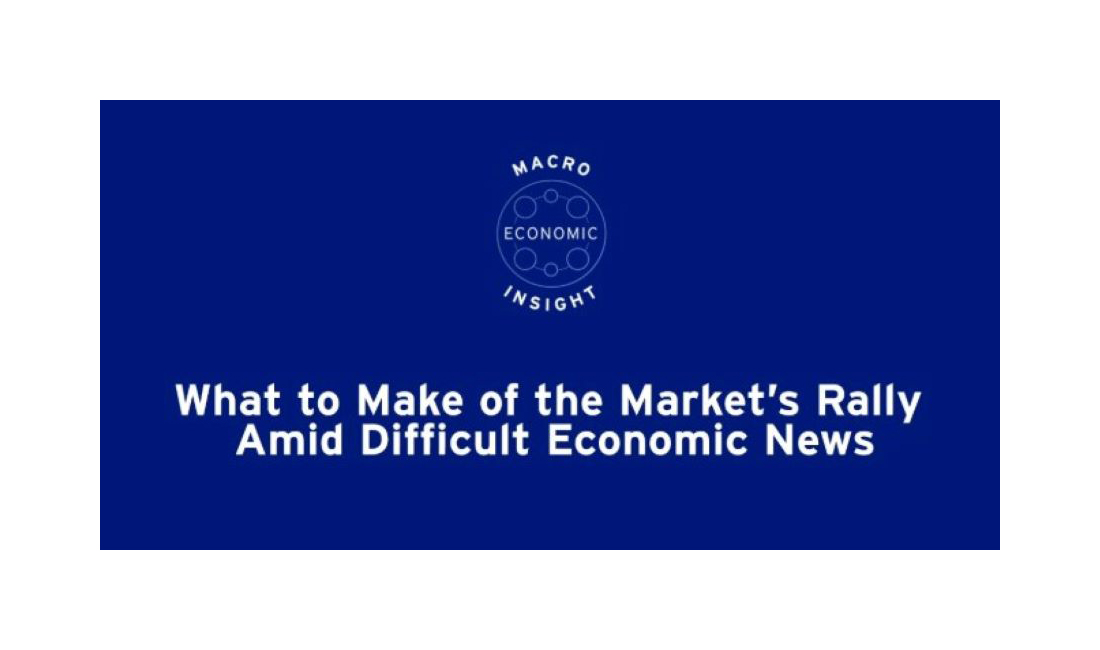by Tony DeSpirito, CIO, US Fundamental Active Equity, Blackrock
The global coronavirus outbreak has changed everyday life in profound ways ― and will likely reshape the future as well. Tony DeSpirito identifies five areas of change that could have implications for investors.
Market volatility never feels good. The kind we’ve felt amid the coronavirus pandemic has been particularly taxing. Of course, this is no ordinary moment in history. It will be a defining moment for individuals, businesses and industries worldwide.
Long-term stock investors know they are buying into the perceived future value of a company. That’s exactly why it’s important to look past the next few weeks to the months and years ahead. Chances are the world will look very different than it did when we started 2020 ― and that can mean new doors for investors to explore.
In a previous post, I spoke about creating a shopping list for your portfolio for the more immediate rise out of the crisis. Today I’ll focus on five areas I think may look very different as the world recalibrates from a health crisis that tested every aspect of daily life.
1. Technology to power a low-contact world
Technology was a strong performer before the crisis and is well poised to be a winner going forward. The crisis has turbocharged trends already in motion: remote offices, online education, online gaming, and streaming. We expect these and many more manifestations of a virtual life, now widespread and embraced, will only accelerate, and the software and infrastructure to support them will be in increased demand.
Beyond that, technology to power contact-free activity of all sorts could benefit. Consider driver-less delivery, telehealth and eSports. 5G could also get a boost as speed of data transfer becomes a more imminent need in remote work settings.
2. Global vs. local debate
To the extent countries look inward to care for their populations and economies, we could see a move from the decades-long trend of globalization to regionalization or localization. U.S.-China trade tensions had already incited questions about the location of global supply chains and risk of concentration. Coronavirus intensified the attention.
Supply chains will need to diversify to enhance their resilience. Many countries will likely look to bring manufacturing home. Yet shifting from a concentrated to a more diversified supply chain will come with costs. Companies can either absorb these costs (which would hurt profitability) or pass them on to consumers by charging higher prices for end products (which would be inflationary).
A subplot to this global vs. local dynamic is urban vs. rural. The virus outbreak has been hardest felt in dense urban areas. These are also business centers. We could see a shrinking office footprint as populations gravitate away and remote workforces grow. Meanwhile, less-urban areas could benefit in several ways: onshoring of manufacturing would likely go to these areas; the ability to work remotely means people can relocate from urban hubs; and retirees who preferred culture centers like New York City may see disadvantages of dense areas and look to more rural settings.
3. Company balance sheets reconsidered
The definition of a “solid” balance sheet may be rethought. Companies are designed to withstand recessions, but not months of zero revenue. We’ve already seen some companies in deeply affected industries cut dividends and seek to raise capital to secure themselves greater liquidity. Many of these companies had more debt than they should have. They may have made acquisitions but had levered up their balance sheets to do so. We believe use of leverage will be reassessed.
One upshot may be a decline in mergers and acquisitions (M&A), which had been elevated in recent years, as shown below. The opposing argument is that balance sheet scrutiny and recent calls to curtail share buybacks could mean any excess cash a company holds may instead be applied to M&A. We are watching these two counterforces. In either case, we expect entities with ample cash could be positioned to make some extraordinary deals with companies that are cash needy in the wake of the crisis.
4. ESG accelerated
We see the coronavirus crisis as a defining moment for ESG (environmental, social and governance)-related investing. The way individual companies have behaved toward society in this crisis will be remembered, and business will favor those deemed to have done the right thing by their employees, customers and communities. At the same time, coronavirus has reminded us that when it comes to human vs. nature, the upper hand often goes to nature. To the extent humans see the importance of having a healthy respect for nature, that could be a pivot point for environmental considerations such as climate change.
We see ESG as an enduring market theme. It is no longer only about controversies and downside risks but will increasingly impact company fundamentals and valuation multiples. Investors, it seems, are paying attention: Sustainable strategies have outperformed in the recent downturn and continue to attract inflows.
5. Slow ease back to leisure
Leisure is likely to be depressed for quite a while as virus concerns weigh heavily on hearts and minds worldwide. Once a vaccine is in place, however, we expect to see a healthy rebound in leisure travel. As the world returns to “normal,” people will want to get out and experience life to its fullest again. History is worth revisiting here: The 1918-1920 influenza pandemic coincided with the end of WWI, which was followed by the roaring 20s. There is a palpable desire to forget.
Work-related travel may be another story. Company managements now have real-time evidence that video conferencing is both an effective and economically efficient alternative to in-person meetings and events. Business travel may never return to pre-pandemic levels.
The day will come when coronavirus is a memory. We are all in anxious wait. And when we view this time in hindsight, I do believe it will be characterized as a buying opportunity for stocks. This is one thing that truly sets active management apart ― the ability to look beyond the current moment, think critically about the world and invest in its future potential.
Explore our latest BlackRock Bottom Line episode by Tony Despirito
Tony DeSpirito is Chief Investment Officer for U.S. Fundamental Active Equity and a regular contributor to The Blog.
Investing involves risk, including possible loss of principal.
This material is not intended to be relied upon as a forecast, research or investment advice, and is not a recommendation, offer or solicitation to buy or sell any securities or to adopt any investment strategy. The opinions expressed are as of April 2020 and may change as subsequent conditions vary. The information and opinions contained in this post are derived from proprietary and non-proprietary sources deemed by BlackRock to be reliable, are not necessarily all-inclusive and are not guaranteed as to accuracy. As such, no warranty of accuracy or reliability is given and no responsibility arising in any other way for errors and omissions (including responsibility to any person by reason of negligence) is accepted by BlackRock, its officers, employees or agents. This post may contain “forward-looking” information that is not purely historical in nature. Such information may include, among other things, projections and forecasts. There is no guarantee that any forecasts made will come to pass. Reliance upon information in this post is at the sole discretion of the reader. Past performance is no guarantee of future results.
Prepared by BlackRock Investments, LLC, member FINRA.
©2020 BlackRock, Inc. All rights reserved. BLACKROCK is a registered trademark of BlackRock, Inc. All other marks are the property of their respective owners.
USRMH0420U-1151349-3/4
This post was first published at the official blog of Blackrock.












